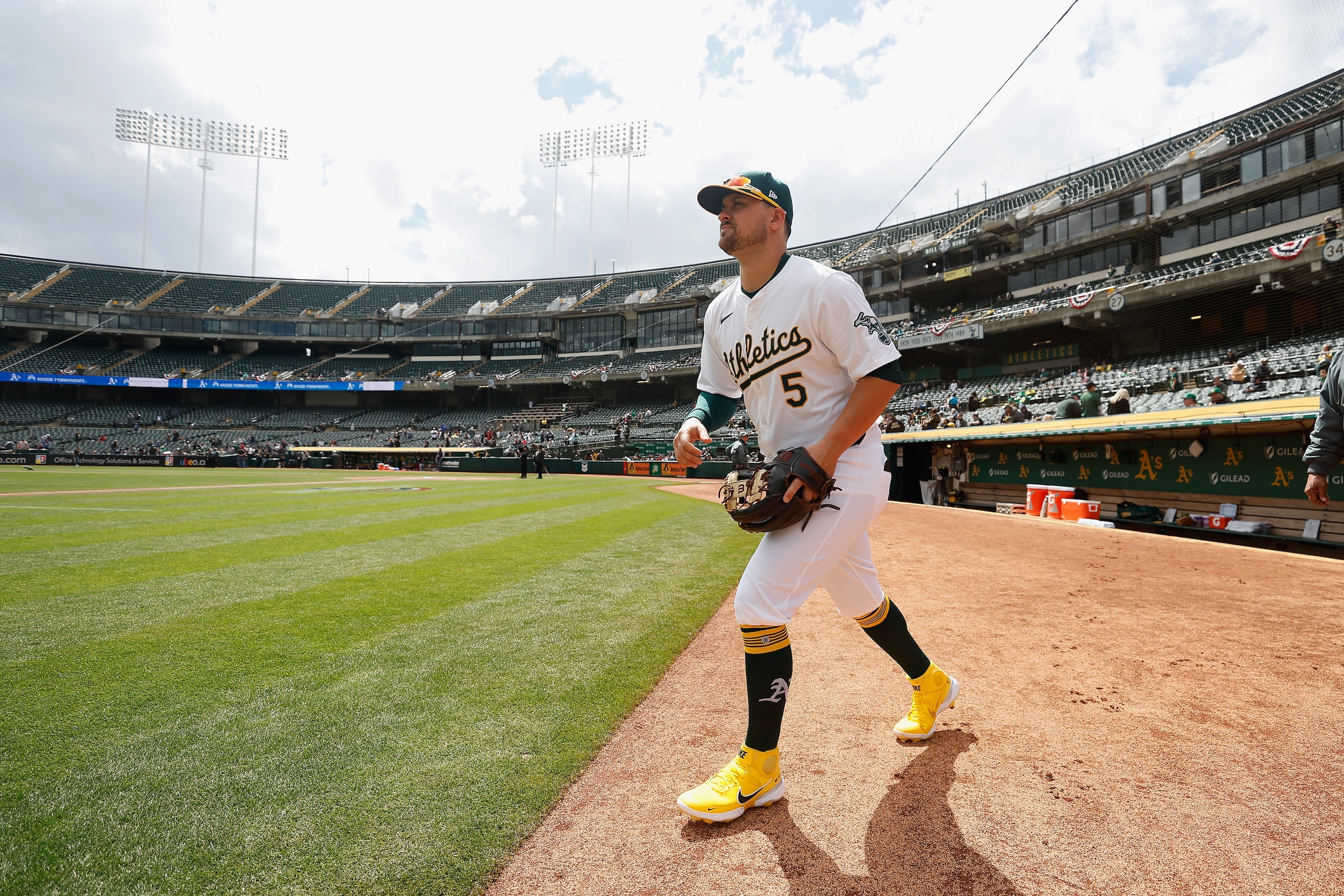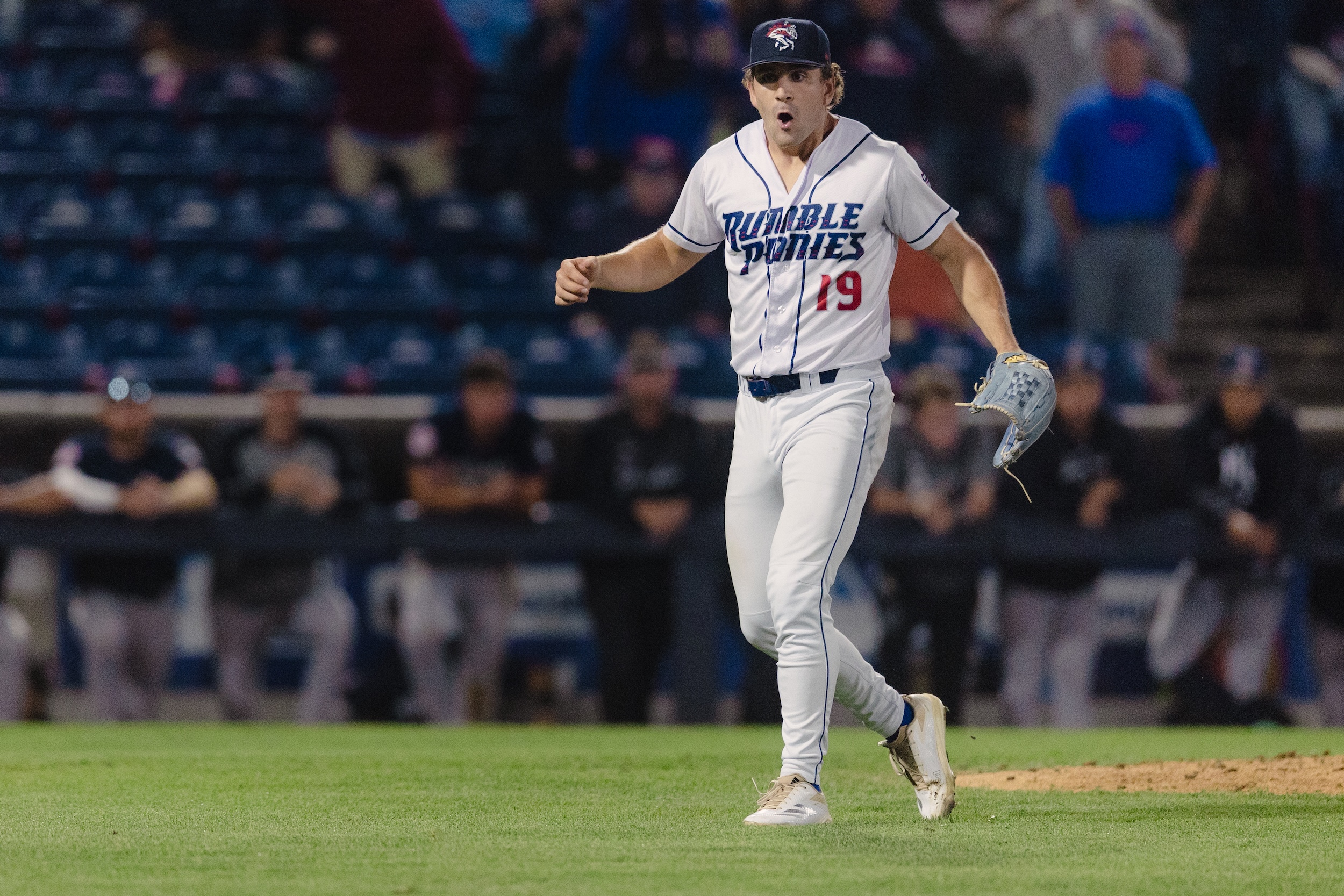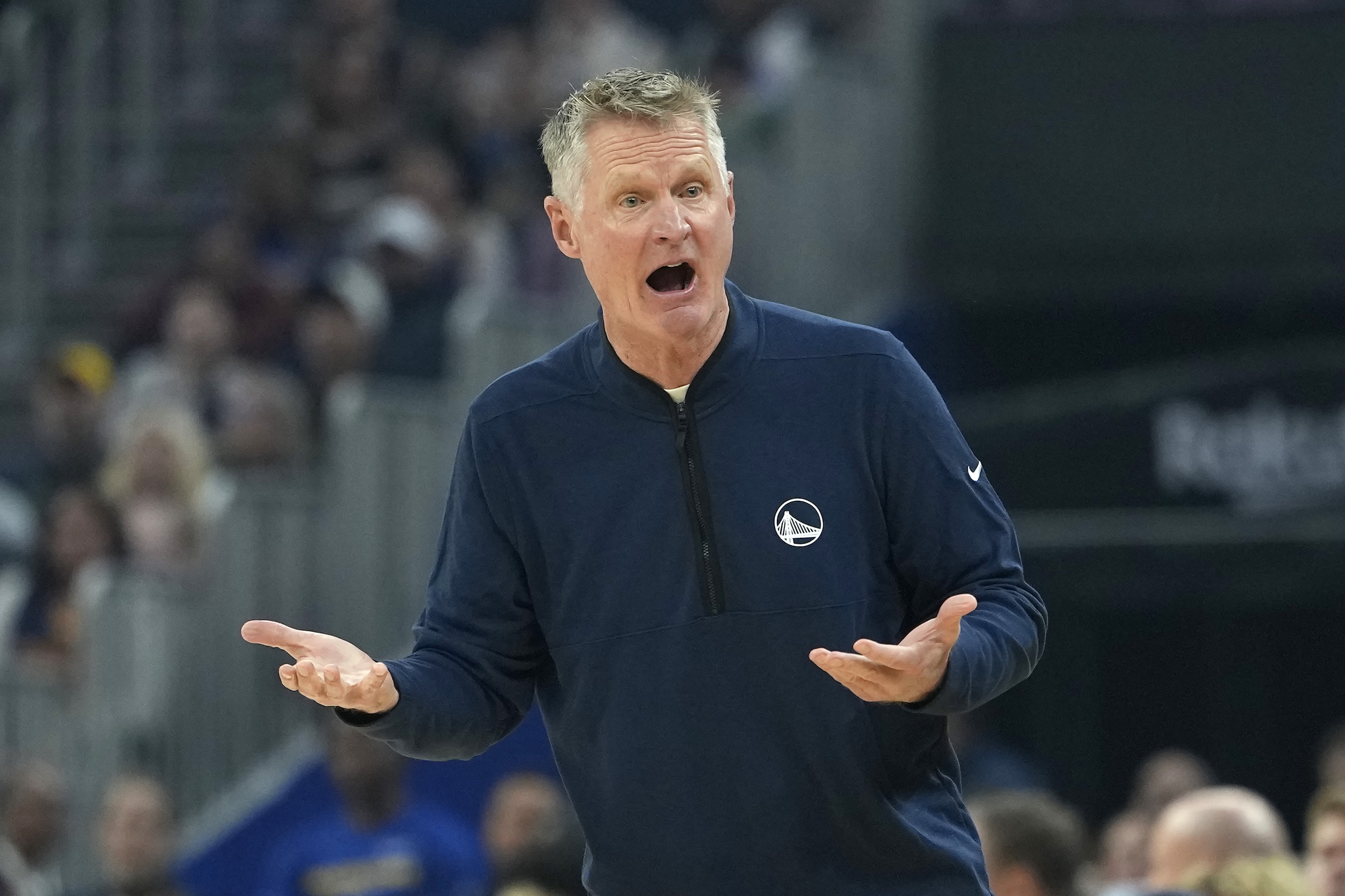Somewhere around 4,000 fans were on-hand Sunday in Oakland when Athletics pinch hitter Abraham Toro declined to swing at a ninth-inning 3–0 fastball from Guardians reliever Eli Morgan. The pitch missed up and in. Toro dropped his bat and jogged toward first base; pinch runner Darell Hernaiz, on third with the bases juiced, trotted home, and the home dugout emptied to the echoing applause of all that is left of the team's diehard fanbase. Passive inaction had delivered to the Athletics their first win of the 2024 regular season. This team stinks real bad, on purpose; there won't be too many of these.
John Fisher, the Athletics' worst-in-class owner, is still pursuing a plan to move them from Oakland—where Fisher's persistent neglect and sneering contempt have long convinced an otherwise passionate fanbase to find better ways to spend its time and money—to a new permanent home on the site of the Tropicana Las Vegas casino hotel, in Nevada. A lot of this is still fluid, owing to Fisher's evident preference to half-ass everything to do with his baseball team, although parts of it are lurching into unsteady focus. In March, Fisher finally showed renderings of a domed Las Vegas stadium concept evidently inspired by either the contours of the famous Sydney Opera House or the dermal bone plating of an armadillo, or both.
The stadium, which at the earliest would not open until 2028, would hold MLB's smallest capacity crowd (33,000) and would cost at least $1.5 billion to build, of which about $350 million would come from public financing. It would also have what would appear to be one of the world's largest windows, oriented behind the outfield with a view of the world-famous Strip. We might as well go ahead and say that the stadium will lift off the ground and fly around in the sky, for as seriously as anyone ought to take any early stadium renderings. This is at least the fifth time that Fisher has shown renderings of a fancy new A's stadium since he started putting the squeeze on the city of Oakland for a home to replace the ancient Coliseum, almost 20 years ago. The man simply loves to fantasize about large buildings.
Another part of this is going to become if not real then at least a little bit less imaginary, as early as 11 a.m. on the morning of April 2. That is when the final guests will check out of the goofy old Tropicana, and the casino hotel will close its doors forever, to begin what is expected to be a months-long process of emptying and gutting and then demolishing its various buildings and sweeping away the rubble, to prepare the land for whatever comes next. Bally's Corporation, which controls but does not own the 35-acre plot, has pledged the front corner of it for Fisher's stadium project, and plans to build a new casino hotel in an adjacent space. This whole development theory is contingent upon Fisher coming up with at least $1.1 billion in private financing; it will surprise you not at all to learn that this, too, is still largely up in the air. Fisher so far has pledged $500 million in inherited family wealth, and reiterated to the San Fransisco Chronicle in March that he plans to raise the rest of his share from a combination of debt and equity investment.
But Bally's Corporation isn't quite the rock-solid partner an owner might normally choose for this sort of joint venture. For one thing, despite Fisher explaining away the postponements that delayed the reveal of his own renderings by more than three months as a matter of coordinating with Bally's to map out the entire project, Bally's still hasn't shown their own concept for the abutting casino hotel. Possibly this has to do with the fact that the company is in dire financial shape: The Nevada Independent reported in March that Bally's "has more than $3.6 billion in long-term debt on its books" and reported a net loss of $173 million in 2023; meanwhile the company is facing a whopping $800 million shortfall in funding for a casino hotel in downtown Chicago.
Fisher is of course going uh it's fine this is all fine about this news, familiar as he is with pledging commitment to projects that are at least 90 percent make-believe. Bally's chairman and largest shareholder Soo Kim said in March that the best current idea for dealing with his company's shocking lack of resources might be for Kim's own hedge fund to buy up enough Bally's stock to take the company private, in order to protect their financials from the disapproving eyes of investors. As a sophisticated business knower, I can say for sure that this maneuver will definitely lead to someone dropping off several bags containing billions of dollars in desperately needed cash on the company's doorstep.
Unbelievably, there is still the matter of where exactly the Athletics plan to play home games between the end of this regular season and that fantastical day in the future when Fisher has a finished stadium somewhere on this planet to call his team's permanent home. Tim Keown of ESPN reported Saturday that Tuesday the city of Oakland plans to present Fisher with an offer to extend the Athletics' lease at the Coliseum for a further five years. The deal would come with an opt-out clause that would allow Fisher to bail after three years, in the event that Fisher's Nevada armadillo project is completed on schedule [snort]. It would also include an "extension fee" of $97 million, which according to Leigh Hanson, chief of staff of Oakland mayor Sheng Thao, is "nonnegotiable." That $97 million figure, reports Keown, is pegged to the shortfall in funding for the Howard Terminal stadium project that would've kept the Athletics in Oakland before Fisher abandoned it in order to pursue his Las Vegas dreams.
The city has leverage in this negotiation and is using it, but Fisher is not without options, even at this late stage. The Chronicle reported Friday that Fisher has been negotiating with the team's regional sports network (RSN) for "a revision of the current TV deal" that would allow the team to capture some amount of broadcast revenue even if it has to move outside of the RSN's coverage area. This is important because apparently Sacramento has become a strong contender to host a few pointless seasons of baseball's shittiest major-league operation, should Tuesday's meeting between the Athletics and Oakland hit a stalemate. The Chronicle says Fisher likes in particular that this maneuver would distance his team from the fanbase that he spent decades actively antagonizing. There's something to this: There reportedly were at least as many boycotting fans telling Fisher to rot in hell from the Coliseum's parking lot on Opening Day as there were in the stadium Sunday to watch Toro's walk-off walk.
The team's Oakland non-fans envision an empty Coliseum devoid of supporters and besieged by a raucous crowd of Fisher's working-class foes, without necessarily daring to believe that this embarrassment can deliver anything more tangible than catharsis. It suits this organization awfully well: A team with no real home and a hilariously uncertain future entirely dependent on a jaw-droppingly unserious plan for acquiring one. "I want to do everything I can in my power to make John Fisher look terrible," explained one of the boycott's organizers, to Gabe Fernandez of SFGate. With all due respect to the righteous A's fans partying in the Coliseum parking lot, that's the one part of it that Fisher's got pretty well covered.






